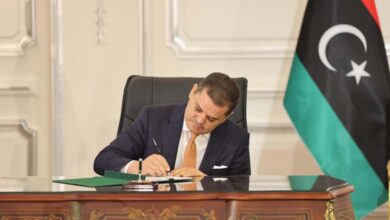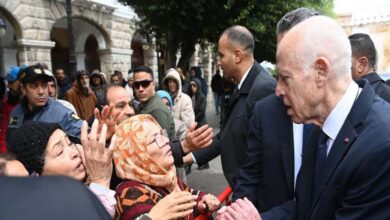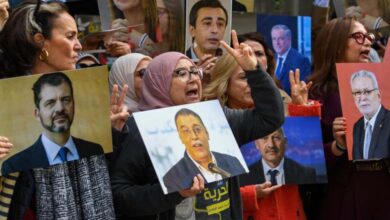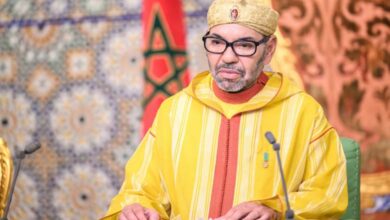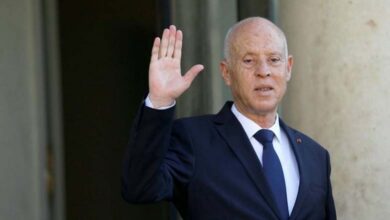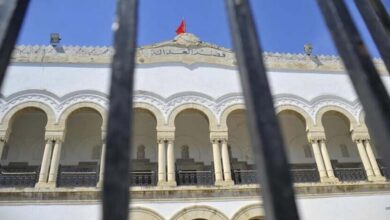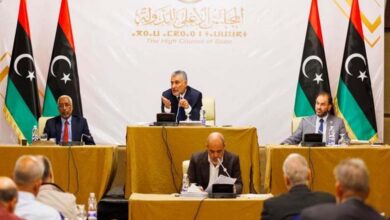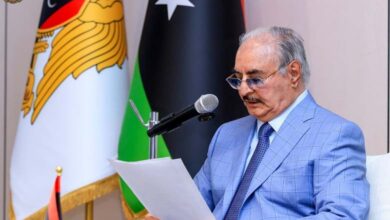On the road to Libyan elections… Islamist obstacles to prolong disputes
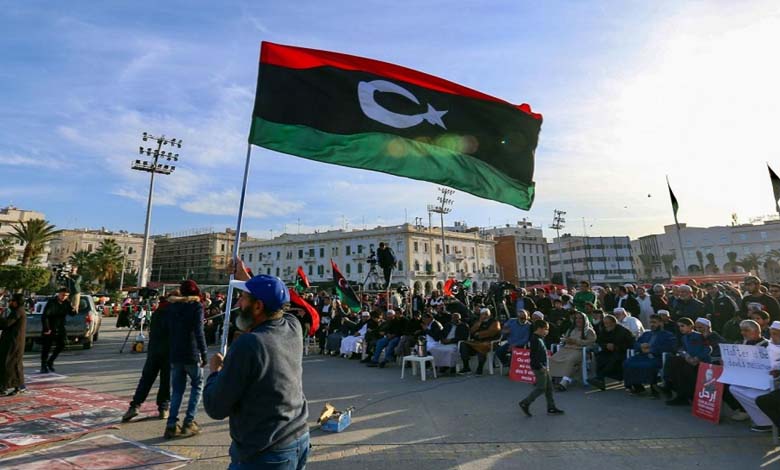
Nothing but time is being manipulated by Libyan Islamists to prolong the duration of disputes and obstruct the path to elections in the hope of securing results in their favor.
A summary emerges on the wings of international messages that affirm that the disputed issues related to the election law require a “political settlement,” suggesting that the election file still needs negotiations, consultations, mediations, and meetings in order to reach agreements that may or may not bear fruit.
On Thursday, the United Nations Support Mission in Libya called on Libyan parties to seek a “political settlement” for issues related to the election law, which was recently approved by the Libyan parliament in Benghazi (East) and is still a subject of dispute with the Islamist High Council of State in Tripoli (West).
This dispute raises the level of frustration and exacerbates indicators of the absence of clear prospects for any agreement to form a mini temporary government that can extend its authority throughout the entire country and oversee the organization of election dates during the remaining transitional period.
With the announcement of the UN mission in Libya that it has completed the technical review of the election laws and its call for a political settlement for the remaining contentious issues, it is clear that it is pushing strongly for a new political dialogue to be added to the series of multiple tracks witnessed by the country in recent years, none of which have yielded fruitful results due to the Islamists.
According to the UN mission, “There are still contentious issues that need to be addressed and resolved through political settlement,” considering that “the newly enacted laws constitute the basis for conducting elections and require commitment to goodwill by all parties, especially the main leaders.”
It emphasized that it had completed “the initial technical review of Presidential Election Law No. 28 of 2023 and Parliamentary Election Law No. 27 of 2023.”
Contentious Issues In its statement, the United Nations mentioned several points indicating a lack of trust among Libyan parties, most notably four points included in the two laws.
These points are “the mandatory second round of presidential elections, regardless of the number of votes the candidates receive, and the link between the presidential and parliamentary elections, making the People’s Assembly elections dependent on the success of the presidential elections.”
It also calls for “the formation of a unified government to lead the country to elections and the closure of the page of interim governments,” as well as “the need to fully include all Libyans, including women and all cultural components.”
The mission stressed that these issues are “of a political nature and require a national settlement to lead the country to elections” and called on the “main parties to show goodwill and enter into constructive dialogue to definitively address these issues.”
Politicians and military and security actors, as well as civil society organizations and tribal leaders, must demonstrate responsible and accountable leadership, enabling all Libyans to exercise their political rights and putting an end to transitional arrangements through peaceful and inclusive national elections for all.
February Initiative?
Observers believe that the UN special envoy in Libya is doing nothing more than rotating within the orbit of the outgoing Prime Minister, Abdul Hamid Dbeibeh, who has confirmed that he will not leave his position except for an elected government.
Therefore, the longer the time wasted on disputes and negotiations, the longer Dbeibeh will remain in his position, clearly indicating that the item in the 6+6 Committee agreement regarding the formation of a new government will not be implemented in reality.
The steps of the parliament, headed by Aguila Saleh, aimed at implementing that item, seem to be heading towards a vacuum.
A vacuum that could push the UN special envoy, Abdoulaye Bathily, to launch an initiative he announced in February, in which he proposed the formation of a high-level steering committee for Libya.
At the time, Bathily stated that the initiative aims to bring together all active Libyan parties, including representatives of political institutions, important political figures, tribal leaders, civil society organizations, security agencies, women, and youth.
Libya has been in chaos since the fall of Muammar Gaddafi’s regime in 2011, with two rival governments competing for power, one controlling the west of the country based in Tripoli, led by Dbeibeh, and the other controlling the east of the country, led by Oussama Hamada, tasked by the House of Representatives.


